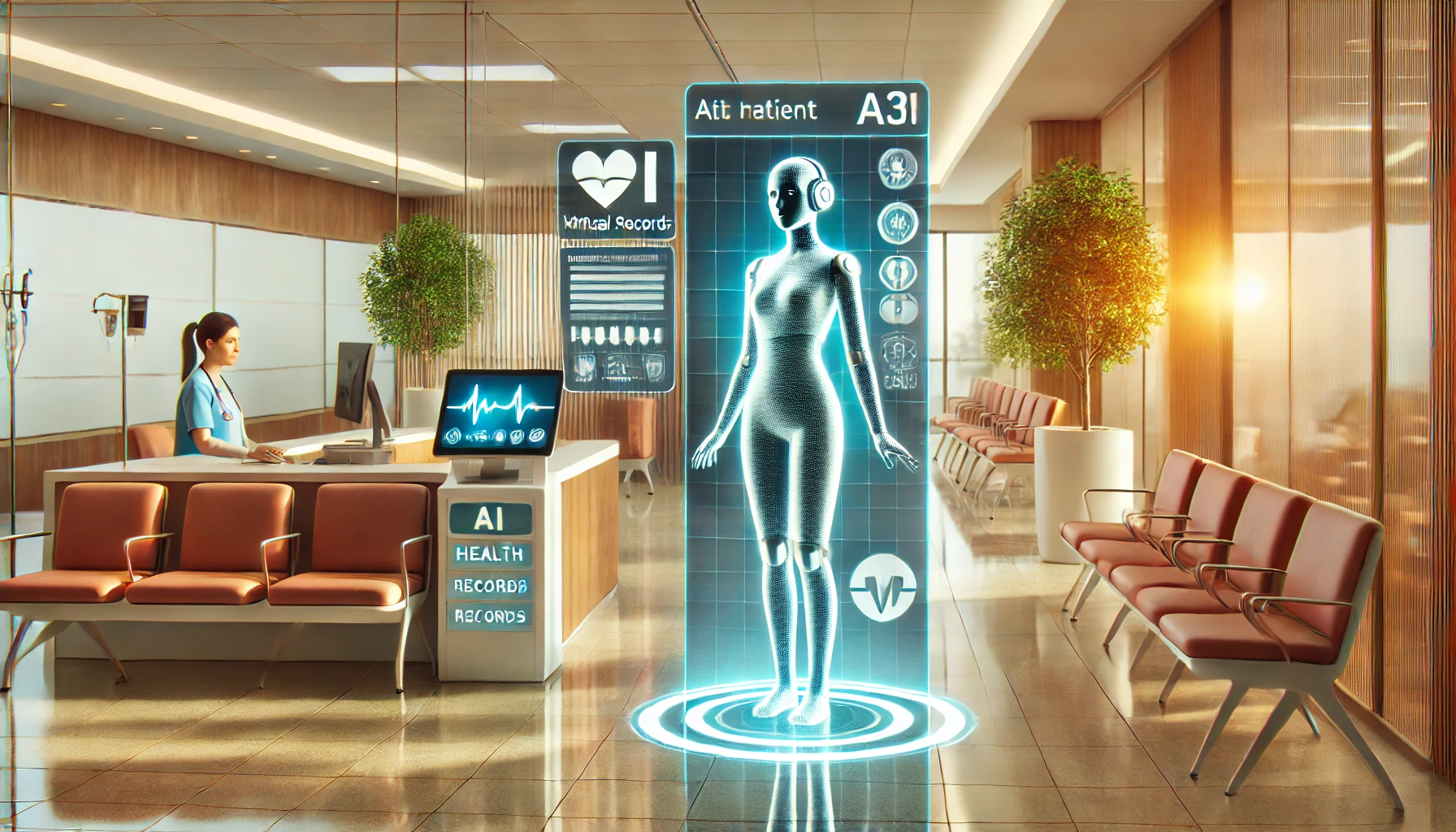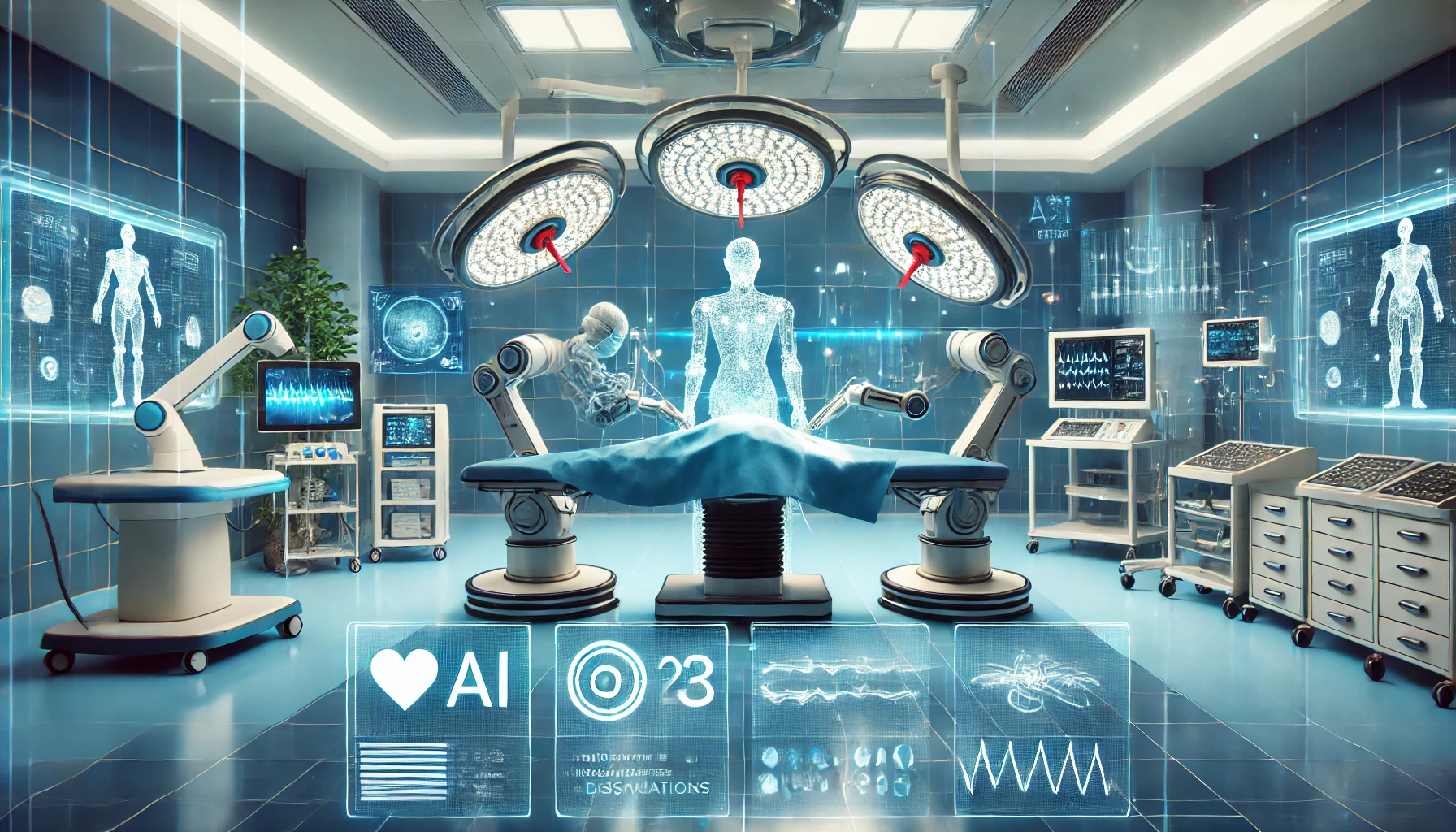The Future of Medicine: How AI is Revolutionizing Healthcare
Artificial Intelligence (AI) is changing many industries, and healthcare is one of the biggest areas benefiting from this technology. AI is not just a futuristic concept—it is already helping doctors, hospitals, and patients in ways we never imagined. From diagnosing diseases faster to assisting in surgeries, AI is making healthcare more efficient and accurate. In this article, we will explore how AI is transforming healthcare with real-world examples.
1. AI in Disease Diagnosis
One of the most important ways AI is helping healthcare is by diagnosing diseases more accurately and quickly. Traditional methods of diagnosis often rely on human doctors examining test results, which can take time and may have errors. AI, on the other hand, can analyze medical data in seconds and detect diseases with high accuracy.
Example: AI Detecting Cancer
AI is being used to detect diseases like cancer at an early stage. For instance, Google’s DeepMind has developed an AI system that can detect breast cancer in mammograms more accurately than human radiologists. This means patients can get diagnosed earlier, increasing their chances of survival.
Another example is AI-powered tools like IBM Watson, which can analyze thousands of medical research papers and help doctors make better treatment decisions for cancer patients.
2. AI in Medical Imaging
Medical imaging includes X-rays, MRIs, and CT scans, which help doctors see inside the human body. AI-powered software can analyze these images and detect abnormalities much faster than human doctors.
Example: AI in Brain Scans
A company called Qure.ai has developed AI software that helps detect brain injuries in CT scans. It can quickly identify signs of bleeding in the brain, which is critical for treating stroke patients. This helps doctors act fast and save lives.
3. AI-Powered Virtual Assistants
Many people now use virtual assistants like Alexa and Google Assistant at home. But in healthcare, AI-powered virtual assistants are helping patients and doctors by providing medical information and reminders.
Example: AI Chatbots for Patients
Apps like Ada and Buoy Health use AI chatbots to help people understand their symptoms. Users can enter their symptoms into the app, and the AI provides possible causes and suggests if they should see a doctor. This reduces unnecessary hospital visits and saves time for both patients and doctors.

4. AI in Surgery
AI is also being used in robotic surgeries, where AI-powered robotic arms assist human surgeons in performing delicate operations. These robots help reduce human error and make surgeries more precise.
Example: AI-Assisted Robotic Surgery
The Da Vinci Surgical System is a famous example of AI in surgery. It allows surgeons to perform complex operations with minimal incisions, reducing recovery time for patients. The AI-powered system provides real-time feedback to doctors, ensuring safer procedures.
5. AI in Drug Discovery
Developing new medicines is a long and expensive process, often taking years. AI is speeding up this process by analyzing medical data and predicting which drug formulas may work best for certain diseases.
Example: AI Finding COVID-19 Treatments
During the COVID-19 pandemic, AI played a crucial role in identifying potential treatments. Companies like BenevolentAI used AI to analyze vast amounts of medical data and identify existing drugs that could help treat the virus. This helped researchers speed up the process of finding solutions to the pandemic.
6. AI in Personalized Medicine
Every patient is different, and AI is helping doctors provide personalized treatments based on an individual’s genetic makeup and medical history.
Example: AI in Diabetes Management
AI-powered apps like One Drop and BlueLoop help diabetic patients monitor their blood sugar levels and provide personalized recommendations. The AI learns from past data and suggests the best actions to keep blood sugar levels stable.
7. AI for Managing Hospital Operations
Hospitals deal with large amounts of data every day, from patient records to staff schedules. AI helps hospitals manage these operations more efficiently.
Example: AI Scheduling Hospital Staff
AI-powered systems are being used to schedule hospital staff shifts in a way that ensures enough doctors and nurses are available at all times. This improves patient care and reduces stress for healthcare workers.
7. AI for Managing Hospital Operations
Hospitals deal with large amounts of data every day, from patient records to staff schedules. AI helps hospitals manage these operations more efficiently.
Example: AI Scheduling Hospital Staff
AI-powered systems are being used to schedule hospital staff shifts in a way that ensures enough doctors and nurses are available at all times. This improves patient care and reduces stress for healthcare workers.
Challenges of AI in Healthcare
Despite its benefits, AI in healthcare also has challenges. Some of the main concerns include:
Data Privacy: AI systems require a large amount of patient data, and keeping this data safe from cyber threats is crucial.
Ethical Issues: AI should be used responsibly to ensure fair and unbiased medical decisions.
Human Supervision: AI should assist doctors, not replace them. Human expertise is still essential in medical decision-making.
Conclusion: A Promising Future for AI in Healthcare
AI is revolutionizing healthcare, making it faster, more efficient, and more accurate. From diagnosing diseases to assisting in surgeries and discovering new medicines, AI is improving medical care in many ways. While challenges remain, the future of AI in healthcare looks promising, with continuous advancements benefiting both patients and healthcare professionals.
As technology continues to evolve, AI will play an even bigger role in keeping people healthy. The combination of human expertise and AI’s efficiency will create a healthcare system that is smarter, safer, and more effective for everyone.






